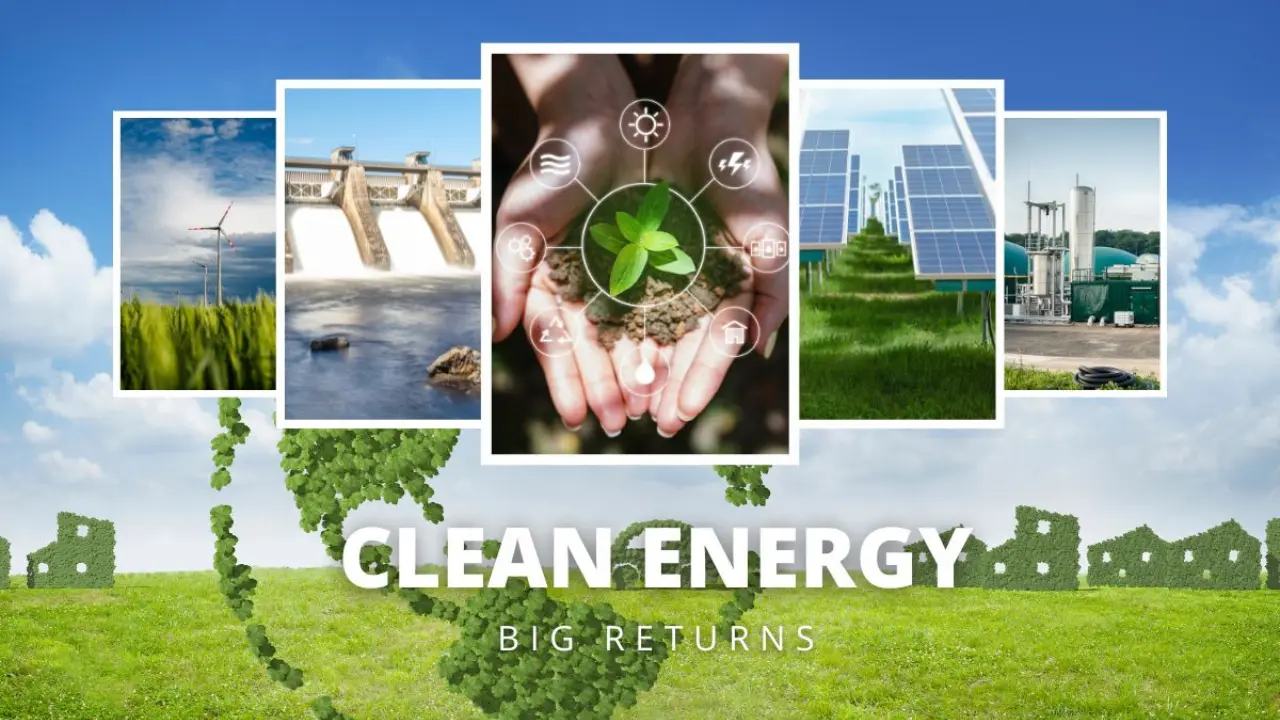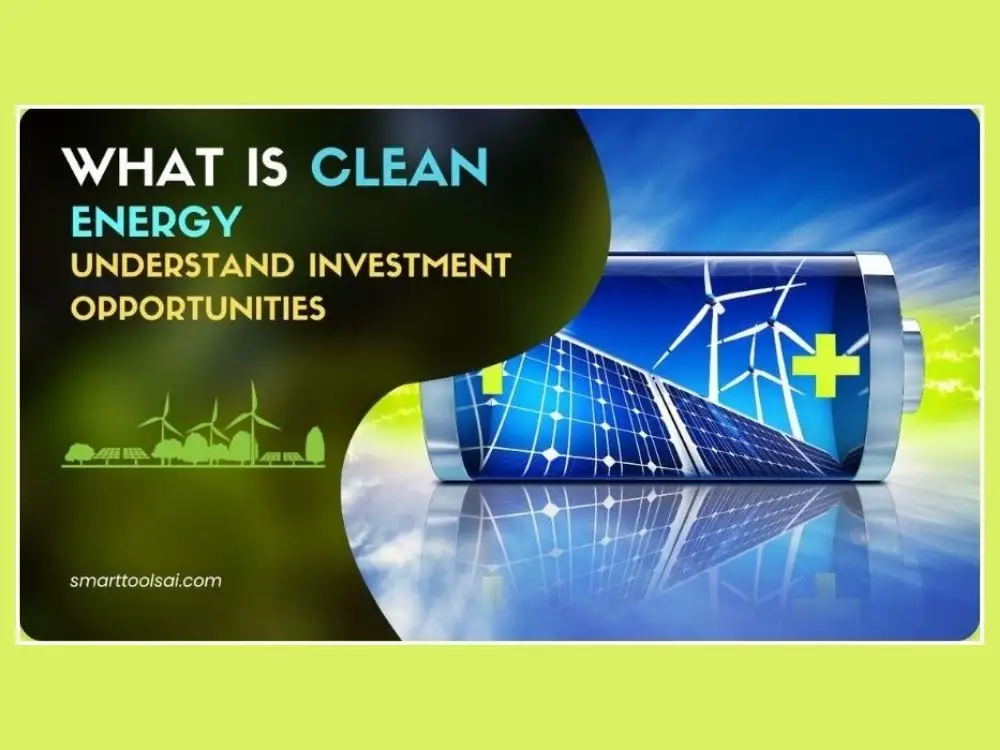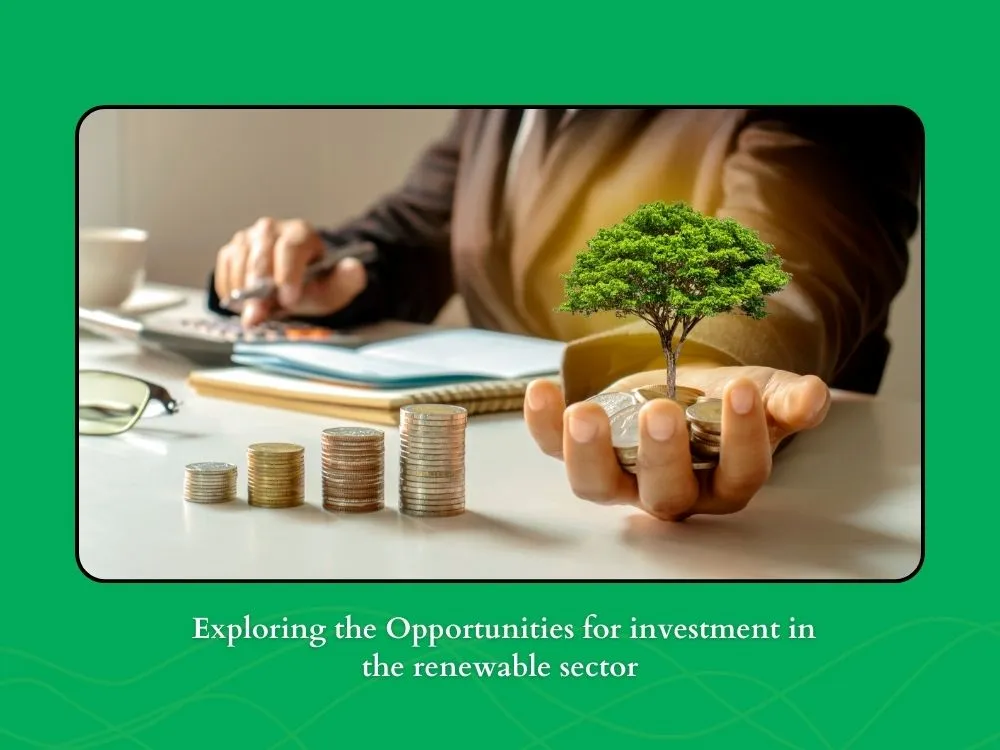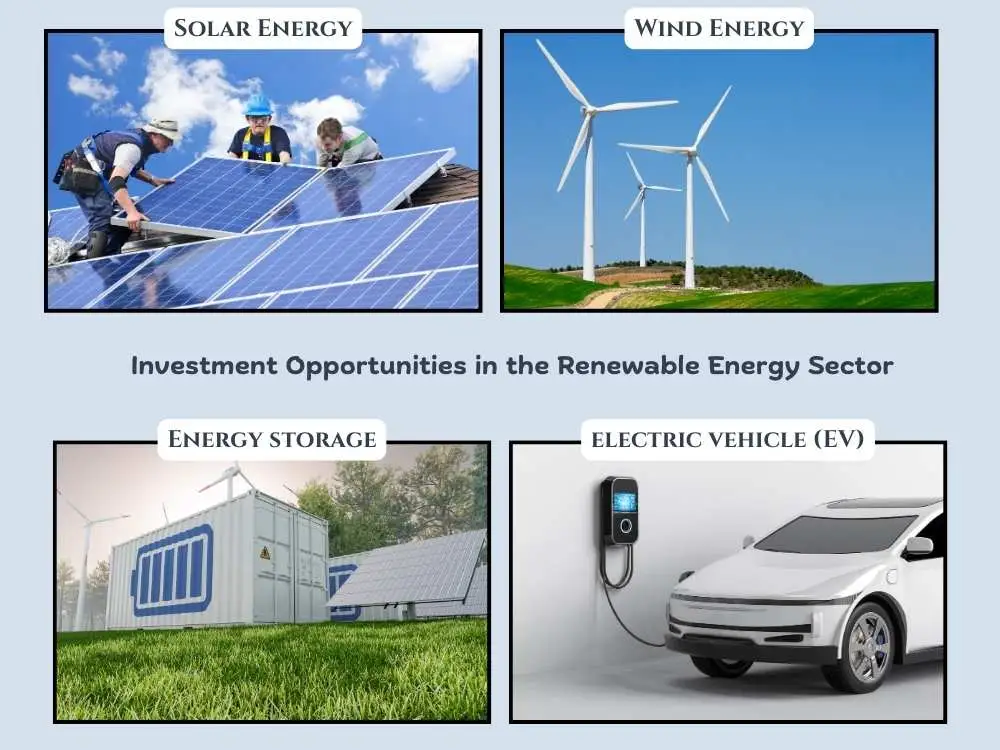
Clean Energy, Big Returns: Unlocking Key Investment Opportunities in the Renewable Sector
Globally, the demand for clean energy and sustainable practices has been increasing. The demand is rising because companies must address the impacts of non-renewable energy usage, such as fossil fuel burning. Also, firms must focus on the environment and take necessary steps to reduce their ecological footprints.
Nowadays, people are more interested in eco-conscious and sustainable products and services. Because of this latest growing trend, businesses are keener on green practices where they use renewable energy sources, implement appropriate recycling programs, and reduce waste. Investing in renewable energy sources presents numerous advantages for companies with both for the environment and their profitability.
Key Takeaways
- Understand the growing global demand for clean energy and the importance of reducing non-renewable energy usage to address environmental impacts.
- Learn about various types of renewable energy sources such as wind, solar, hydropower, biomass, and geothermal, and their significance in sustainable practices.
- Explore investment opportunities in the renewable energy sector, including high returns from solar energy, wind energy, energy storage, and electric vehicles.
- Recognize the role of government policies, tax credits, subsidies, and grants in promoting renewable energy investments and encouraging green practices.
- Be aware of the risks and challenges in the renewable sector, such as technological and regulatory uncertainties, and the volatility of energy markets.

The Pressing Need to Reduce Greenhouse Gas (GHG) Emissions
As we all know, greenhouse gas (GHG) emission is a significant contributor to global warming. Reducing GHG is an urgent and necessary aspect where global temperature continues to increase. Deforestation and burning fossil fuels are significantly contributing to GHG emissions.
If GHG emission continues to rise, it will lead to more catastrophic natural disasters like wildfires, floods, droughts, tsunamis, and cyclones. It can also cause ozone depletion, which leads to the presence of high heat and radiation, causing many heat-related diseases in humans.
To prevent the most vulnerable consequences of climate change and global warming, it's necessary to take quick and strategic actions to restrain greenhouse gas emissions. For this reason, industries concentrate more on using renewable energy as the best alternative to fossil fuel burning.
It's suitable for the environment. Plus, the modern trend of consumer behaviors indicates that they like to use sustainable products and services in every industry like agriculture, transportation, construction, and many other sectors.
Opportunities for Investment in The Renewable Sector

a) Types of Renewable Energy Sources
Renewable energy comes from natural sources that are abundant and sustainable. They provide great environmental benefits, and the main types are:
- Wind Power: It uses spinning turbines to catch the wind and turn it into electricity.
- Solar Power: Panels that convert sunlight directly into electrical power.
- Hydropower: Captures energy from flowing water to generate electricity.
- Biomass Energy: Turns organic materials like wood, crops, and waste into usable power.
- Geothermal Power: Harnesses heat from deep underground to create electricity.
Each of these renewable energy sources has immense importance in the eyes of people. This is because individuals and communities strive hard to reduce their carbon footprint and embrace sustainable practices. Moreover, the improvements in technology play a significant role in producing renewable energy more cost-effectively and widely available to people worldwide.
b) The Potential for High Returns on Investment
Investing in various types of renewable energy sources has the potential for high returns, whereas the world is more concerned about a greener future. Nowadays, people concentrate on green investments where different sectors like transportation, construction, and electricity production are using renewable energy sources instead of non-renewable energy.
With this drastic change in trend and sustainability thinking, investing in renewable energy sources can yield significant returns. This is indeed a wise choice for investors because it has continuous growth in demand and provides financial benefits. It also plays a crucial role in mitigating the adverse impacts on the environment.
The Role of Government Policies and Incentives

a) Tax Credits, Subsidies, and Grants
Tax credits, subsidies, and grants are some of the government incentives and policies that play a crucial role in promoting renewable energy investments. By providing this necessary support, the government motivates individuals and businesses to make investments in renewable energy production.
Tax credits help businesses reduce their tax amount, while grants and subsidies provide financial assistance to investors to successfully initiate their business in the renewable energy sector. These incentives can encourage more people to have a better start, who struggle with a lack of financial capabilities.
b) State and Federal Mandates for Renewable Energy Adoption
Because of the growing concerns about global warming, carbon emissions, and climate change, State and federal mandates require the adoption of renewable energy globally. These regulations necessitate the requirements of different green energy productions in several sectors using sources like wind, solar, geothermal, and hydropower.
By efficiently utilizing these natural energy sources, industries, the government, the environment, and the general public will get many benefits. Further, with the continuing advances in clean energy technology and increasing public support, the requirements for green energy will rise in the coming years.
Key Investment Opportunities in The Renewable Sector

a) Solar Energy
This is one of the main renewable energy sources. Investing in solar energy can reduce the consumption of non-renewable energy sources considerably. If you run a large enterprise or a small home office business, you can install solar panels (photovoltaic or PV cells) to harness the energy that is directly derived from the sun's radiation.
This harnessed energy can be used directly to heat or cool the apparatus in dwellings or offices. Alternatively, it can also be saved in batteries and then converted into usable alternating current (AC) with the help of inverters.
Home or business owners have a good number of advantages by using these for their residences. Solar panels can produce a fair amount of electricity, and at times of excessive production, owners can sell it to the national power grid, which is called net metering.
Also, there are so many opportunities for investors who can do businesses like solar power installation services for residential and enterprise building owners. This helps organizations reduce their burden of huge electricity costs and ensures sustainability.
b) Wind Energy
Wind power supports a considerable amount of electricity production. Investing in wind power presents many benefits to investors. The global wind energy market is growing continuously, and it's available in the largest quantity and is a good alternative to fossil fuel burning.
There are opportunities for investors to establish wind farms with turbines that can produce electricity from wind energy. In addition to that, investors can start businesses as outsourcing companies that do installation services for small or large-scale businesses to establish wind farms and turbines.
c) Energy Storage
Investors gain many significant advantages through their investments in energy storage. It's a useful choice where renewable energy sources like wind, solar, and hydropower produce massive amounts of energy during peak times.
The excessive energy produced during peak times is generally stored in batteries for future usage. This is the importance of establishing energy storage. Imagine, during off-season times like rainy seasons, there will be no solar power, and during drought times, the water availability is minimal, and during the no-wind season, there will be no wind power harvesting.
Therefore, there is a high demand for energy storage, which helps store energy that has been produced in peak season. Investors have to invest in establishing energy storage facilities with batteries where they can get a good junk of return on their investments.
d) Electric Vehicles (EV)
There is a rising investment opportunity in electric vehicles because they are made with green energy usage instead of using fossil fuels like diesel and petrol. It's an eco-friendly mode of transportation, and consumers prefer this option because of environmental considerations and rising fossil fuel prices.
The market for electric vehicles (EVs) is booming and is expected to continue further. Moreover, government regulations like emission standards for vehicles that use fossil fuel are tight, which drives the transition towards electric vehicles.
As a result of this massive opportunity, investing in EV companies and electric vehicle production is an attractive option for investors looking to capitalize on this trend. Investment opportunities in electric vehicles are promising for long-term growth, as it has the potential for high returns and a positive impact on the environment.
Risks and Challenges of Investing in The Renewable Sector

a) Technology and Regulatory Uncertainties
Investing in the clean energy sector does come with certain challenges, especially regarding technology and regulatory uncertainties. The rapid growth of renewable technologies makes investors uncertain about which specific technology to choose and whether it will remain viable in the long term.
This makes it difficult to predict which technologies will succeed and which may become obsolete. Additionally, government rules, regulations, and policies will play a crucial role in shaping the profitability of renewable investments.
Changes in these regulations and policies can impact the incentives, subsidies, and market conditions for renewable energy projects. Investors have to monitor closely and adapt to these regulatory changes to mitigate risks.
b) Volatility of Energy Markets
This is one of the major challenges when investing in renewable energy. The market for green energy is volatile because of fluctuations in oil and gas prices. This greatly impacts the profitability of renewable energy projects. Fluctuations in oil and gas prices can affect renewable energy sectors because they are a direct alternative. This volatility creates uncertainty for investors.
Moreover, political regulations also contribute to the volatility of energy markets. Changes in government policies and regulations may promote or restrain renewable energy. It has a direct impact on making investment plans in the green energy sector.
The volatility influences the decision positively or negatively. For example, when alternative non-renewable energy source prices increase, their demand falls and creates room for renewable energy demands.
Wrapping Up
Investing in the renewable energy sector provides big returns both financially and in terms of sustainability. The benefits of green energy are massive to the environment compared to its drawbacks. It prevents the amount of environmental pollution, GHG emissions, ozone depletion, climate change, natural disasters, and related diseases.
Further, investors can significantly benefit financially because the profit margin is high. Further, government support is an addition to this market, which makes renewable energy a stable investment option with steady potential for growth.
The limitations are technological challenges and the competitive market of non-renewable energy usage. With the right strategy, investors can face these challenges to unlock the main opportunities in this fast-growing sector and reach both financial and environmental benefits.
FAQs
Q1: What are the 5 main types of renewable energy?
The five main types of renewable energy are known as wind power, hydropower, solar power, biomass, and geothermal energy.
Q2: Is Electric energy renewable?
Electric energy is not inherently renewable. It depends on the source of electricity generation. Renewable sources like wind, solar, and hydropower produce renewable electric energy, while non-renewable sources like coal and natural gas do not.
Q3: What are examples of renewable energy investments?
Solar power installation, wind farm development, energy storage facilities with batteries, and investments in electric vehicle (EV) companies are some good examples.
Q4: What is the best renewable energy company to invest in?
It may vary based on individual preferences and goals. You need to research and consider established companies in the solar, wind, or electric vehicle sectors. Consult with financial advisors for personalized advice. One such popular company is Tesla.
.webp)